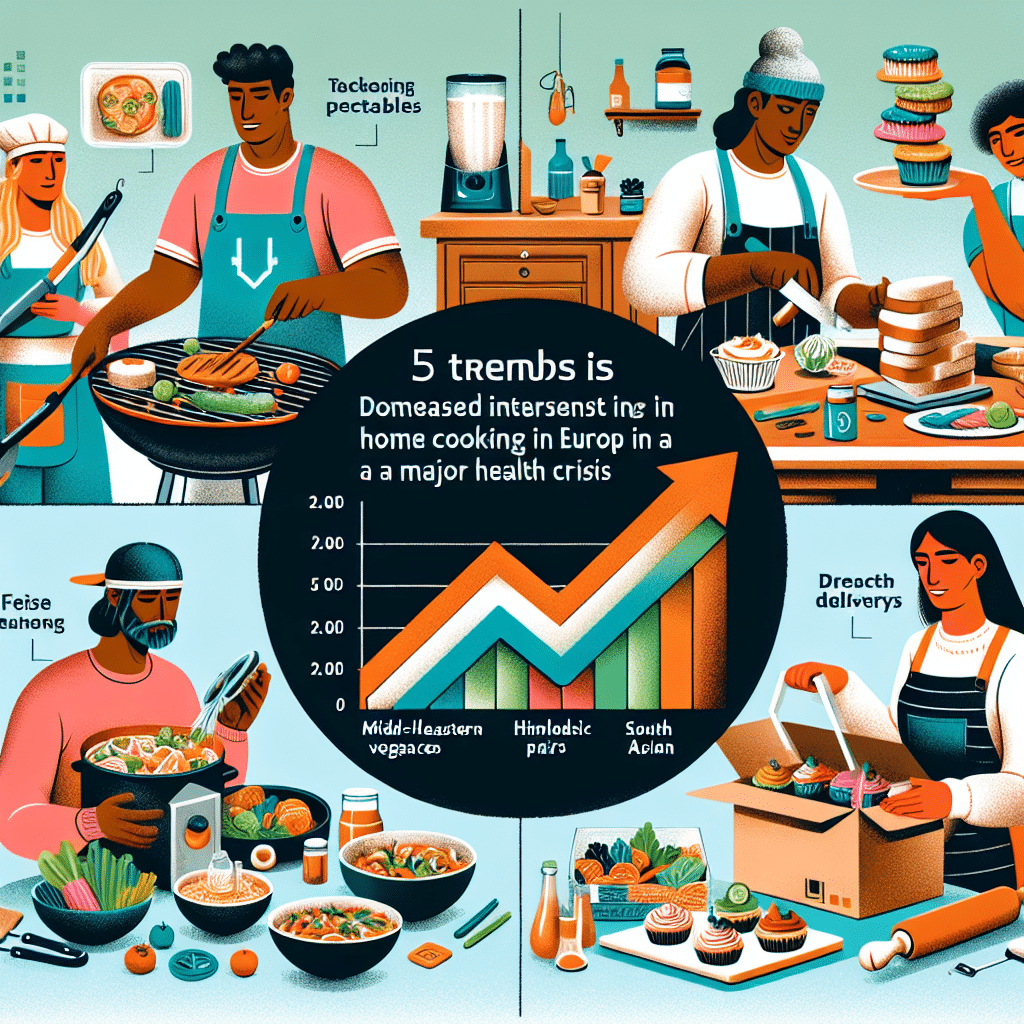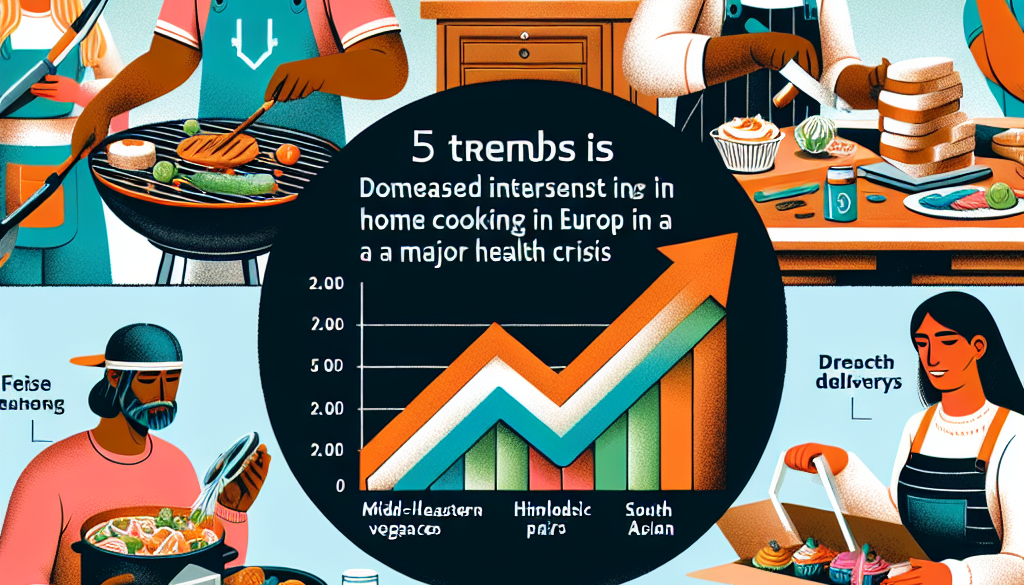5 Food and Beverage Trends in Europe During COVID-19
-
Table of Contents
- Top 5 Food and Beverage Trends in Europe Amidst COVID-19
- 1. Surge in Health-Conscious Eating
- 2. Growth of E-commerce and Online Delivery
- 3. The Rise of Comfort and Indulgence Foods
- 4. Sustainability and Ethical Consumption
- 5. Advent of DIY and Home Cooking
- Conclusion
- ETprotein: Catering to the Protein Needs of a Changing Europe
Top 5 Food and Beverage Trends in Europe Amidst COVID-19

The COVID-19 pandemic has significantly altered consumer behavior and industry trends across the globe, particularly in the food and beverage sector. Europe, with its diverse cultures and economies, has seen a shift in patterns that reflect both the challenges and innovations brought about by the pandemic. This article explores five key trends that have emerged in the European food and beverage industry during the COVID-19 era, providing insights into how businesses and consumers have adapted to the new normal.
1. Surge in Health-Conscious Eating
The health crisis has heightened awareness around personal health and well-being, leading to a surge in demand for healthier food options. European consumers are increasingly seeking out products that boost immunity, improve gut health, and offer nutritional benefits.
- Functional Foods: There’s been a rise in the popularity of foods enriched with vitamins, minerals, and antioxidants.
- Plant-Based Alternatives: A growing number of Europeans are turning to plant-based diets, leading to an increase in the availability of meat substitutes and dairy-free products.
- Organic Products: Organic food sales have seen a significant uptick as consumers associate organic with healthier and safer options.
Statistics from various market research firms have shown that sales of vitamins and supplements have soared, while plant-based meat alternatives have experienced double-digit growth rates in several European countries.
2. Growth of E-commerce and Online Delivery
With lockdowns and social distancing measures in place, online grocery shopping and food delivery services have witnessed unprecedented growth.
- Online Grocery Shopping: Supermarkets and food retailers have expanded their online platforms to accommodate the surge in demand for home deliveries.
- Meal Kit Services: Meal kit delivery services have become increasingly popular, offering convenience and variety while reducing the need for frequent shopping trips.
- Local Produce: There’s been a trend towards supporting local businesses, with many consumers opting for online platforms that source produce directly from local farmers and producers.
Case studies from leading European retailers show that online sales have doubled or even tripled during the pandemic, with many consumers indicating they will continue to shop online post-pandemic.
3. The Rise of Comfort and Indulgence Foods
While health consciousness is on the rise, the stress and uncertainty of the pandemic have also led to an increase in the consumption of comfort foods.
- Snacking: There’s been a noticeable increase in snacking, with consumers seeking out indulgent treats to cope with stress.
- Home Baking: With more time spent at home, there has been a resurgence in home baking, leading to a spike in sales of baking ingredients and mixes.
- Premium Products: Consumers are willing to pay more for premium, indulgent products as a form of self-reward during these challenging times.
Market analysis indicates that categories such as chocolate, ice cream, and baked goods have seen significant growth during the pandemic.
4. Sustainability and Ethical Consumption
The pandemic has also brought sustainability and ethical considerations to the forefront of consumer minds.
- Reduced Waste: Consumers are more mindful of food waste and are seeking products with longer shelf lives or sustainable packaging.
- Ethical Sourcing: There is a growing demand for transparency in sourcing and production, with a preference for brands that demonstrate ethical practices.
- Local Sourcing: The desire to reduce carbon footprints has led to an increased interest in locally sourced food and beverages.
Surveys across Europe show that a significant percentage of consumers are willing to change their purchasing habits to reduce environmental impact.
5. Advent of DIY and Home Cooking
With restaurants closed or operating at limited capacity, there has been a resurgence in home cooking and DIY food and beverage projects.
- Cooking from Scratch: More people are cooking meals from scratch, leading to a rise in sales of fresh produce and cooking essentials.
- DIY Kits: Restaurants and food businesses have pivoted to offering DIY meal kits for consumers to recreate their favorite dishes at home.
- Online Cooking Classes: There’s been an uptick in online cooking classes and tutorials, as individuals seek to improve their culinary skills.
Industry reports highlight that many consumers have discovered a newfound passion for cooking, with some even continuing to cook more frequently post-lockdown.
Conclusion
The COVID-19 pandemic has undeniably reshaped the food and beverage landscape in Europe. From the rise of health-conscious eating and e-commerce to the resurgence of comfort foods and sustainable practices, these trends reflect the adaptability and resilience of both consumers and businesses. As Europe continues to navigate the challenges of the pandemic, these trends offer valuable insights into the evolving preferences and behaviors of European consumers.
ETprotein: Catering to the Protein Needs of a Changing Europe
In light of the growing health consciousness and the demand for plant-based alternatives, ETprotein’s range of organic bulk vegan proteins is perfectly positioned to meet the needs of the European market. Their products, including Organic rice protein, clear rice protein, pea protein, and more, offer high-quality, non-GMO, allergen-free options for consumers seeking to enhance their diets with sustainable protein sources.
ETprotein’s commitment to quality and their extensive product range make them an ideal partner for food and beverage manufacturers looking to innovate and cater to the new trends emerging during the COVID-19 pandemic. With their expertise in exporting and delivering tailor-made protein powder and nutritional supplements, ETprotein is a valuable asset for businesses adapting to the changing landscape of the European food and beverage industry.
About ETprotein:
ETprotein, a reputable protein and L-(+)-Ergothioneine (EGT) Chinese factory manufacturer and supplier, is renowned for producing, stocking, exporting, and delivering the highest quality organic bulk vegan proteins and L-(+)-Ergothioneine. They include Organic rice protein, clear rice protein, pea protein, clear pea protein, watermelon seed protein, pumpkin seed protein, sunflower seed protein, mung bean protein, peanut protein, and L-(+)-Ergothioneine EGT Pharmaceutical grade, L-(+)-Ergothioneine EGT food grade, L-(+)-Ergothioneine EGT cosmetic grade, L-(+)-Ergothioneine EGT reference grade and L-(+)-Ergothioneine EGT standard. Their offerings, characterized by a neutral taste, non-GMO, allergen-free attributes, with L-(+)-Ergothioneine purity over 98%, 99%, cater to a diverse range of industries. They serve nutraceutical, pharmaceutical, cosmeceutical, veterinary, as well as food and beverage finished product distributors, traders, and manufacturers across Europe, USA, Canada, Australia, Thailand, Japan, Korea, Brazil, and Chile, among others.
ETprotein specialization includes exporting and delivering tailor-made protein powder and finished nutritional supplements. Their extensive product range covers sectors like Food and Beverage, Sports Nutrition, Weight Management, Dietary Supplements, Health and Wellness Products, and Infant Formula, ensuring comprehensive solutions to meet all your protein needs.
As a trusted company by leading global food and beverage brands and Fortune 500 companies, ETprotein reinforces China’s reputation in the global arena. For more information or to sample their products, please contact them and email sales(at)ETprotein.com today.














